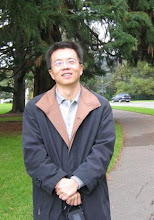Many telecommunication jargons have come to our daily life, CDMA, PHS, CT2, IP, and many Chinese terms in my world. Even professional engineers in this field got lost very often. Though it’s almost impossible for a human to understand everything, don’t be panic. As long as you make the basic concept clear, everything will be easy.
I used to give many presentations for ZTE customers and new employees. I found it is much easier to make people understand many communication terminologies after discussing the following question deeply with them:
Question 1: What is the relationship between classical telecom network and various data network?
Answer in a simple words: The basic element for PSTN is time slot, they are circuit based switched, while the basic element for IP network is packet, they are packet based switched. If you could understand this, then you will understand terms like: circuit switch, packet switch, IP switch, virtual circuit, connection-oriented, connectionless … and many others. Otherwise go to search keywords like “PSTN Telecommunication, packet switch, circuit switch tutorial” from Google and read a tutorial..
Question 2. Nowadays people may hear of 2G, 2.5G, 3G, 4G, next G, what is the difference between them?
The simple answer is: 1G - analog cell-phones, 2G - wireless: digital cell-phones, 2.5G – same as 2G but with faster data services, 3G - Third generation wireless: digital plus high speed data and global roaming, …. Then how high speed it is? How they are implemented? If you start to ask yourself about these questions, eventually you could become an expert on wireless communication.
Don't ask me to compare the pros and cons of CDMA2000, UMTS and WCDMA. I am a normal Engineer only, these questions are far beyond my capability. My capability is limited to do some development or consultation work for a small element within the big system. The question could only be discussed by every Jack and Dave, like you and me for curiosity purpose. Thanks to internet, some tutorials returned from Google are much much better.
